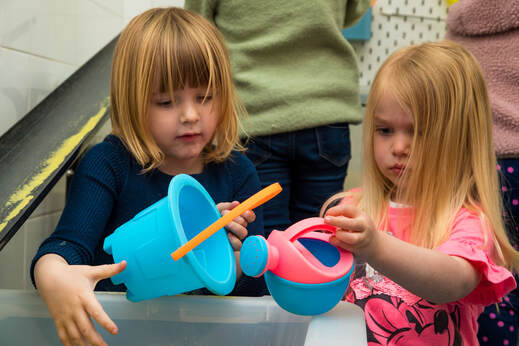If you can learn self control you can master absolutely anything..
Many children (and adults) are finding it difficult to manage their emotions and self regulate, especially at this time, with the pandemic and all the stress it has brought into our lives.
We find teachable moments to help children learn to self-regulate by using co-regulation and skills instruction, as well as practice (and plenty of praise when they try to manage their feelings). It is important that keyworkers and parents work together to find the most effective strategies, so children are able to manage the ‘big emotions’ and challenges they may face, as well as follow rules and understand limits.
Self-regulation is the ability to understand and manage your emotions and behaviour in response to things happening around you. It helps you to control your impulses (to make better decisions), to not over-react when upset or excited, and to be able to calm down after an incident, should one occur. Managing our feelings and emotions is vital, as our ability to do so can affect our lives in so many ways.
Emotionally, self-regulation helps nurture a more positive sense of self, as well as the ability to cope better with stress, which is particularly important given the increasing levels of mental health issues in children.
Socially, it is beneficial for social skills that affect friendships and getting along with others, and can affect the teacher-pupil relationship.
Children with poor self-regulation skills tend to make less academic progress. Poor self-regulation can be displayed through external behaviours such as; shouting, screaming and/or tantrums or through internal behaviours such as; becoming withdrawn, less sociable, non speaking, self harming which are often more difficult to spot.
Early childhood is when our brains experience huge growth, so this is an important time to start learning self-regulation. Teaching self-regulation skills to all our children, but especially our preschoolers, improves their school readiness and the challenges this life change brings with it.
Here are some helpful strategies;
Modelling
It is important for adults to regulate their own emotions, before addressing their child’s. If we are stressed as we go to help a child, we will not be as effective. Even if emotions are rising inside, it is important to present a calm front to the child. Children observe and copy adults and will be learning from us and how we manage our own emotions. So, start off with modelling self-control.
Co-regulate
Co-regulate by providing a warm, responsive relationship with your child, which will in turn, teach them skills to self-regulate. To co-regulate effectively, you need to get alongside your child when they are distressed, reassure them and acknowledge their feelings, using a soothing voice and calm manner. It’s important to focus on the emotion and not on the behaviour.
Use empathy
Use empathy to acknowledge a child’s feelings. Don’t dismiss feelings – they are so important!
Talk about emotions
Find opportunities to talk about the range of emotions we all experience – how we all experience different feelings, it’s normal and it’s how we manage them that’s important. Use story books, songs or games to make it fun.
Games
There are a number of games to help children learn self-regulation skills which involve waiting and turn-taking and provide a fun way of teaching impulse-control:
Red Light – Green Light.
The children run around freely – when ‘Red light’ is called out, they freeze – when ‘Green light’ is called out, they run. Swap it round so they have to go against their impulses.
Musical Statues –
when the music stops, they must freeze. Also in reverse.
Follow my Clap –
clap a rhythm and get the children to copy it.
Body Part Mix-up –
get children to touch a series of body parts i.e. head, toes, knees. Then replace one of the body parts, so when you say ‘toes’ they must touch their ears. This gets them not to just act instinctively.
You may want to use a timer and extend the time you play slowly.
Take a Break-
Regular breaks in the learning – for those children who find it difficult to focus for long periods of time – to stretch or play a quick game such as ‘Shake Your Sillies Out’. 2-3 minutes spent doing this can help refocus and relax.
Mindfulness or Meditation
If you sense your child getting stressed, then try to engage them in a quiet activity. Mindfulness and meditation are a good way for children to learn to pause and focus on breathing and calming down highly-charged emotions. There are some fabulous apps where you can find a range of meditations for children
Sensory specific adjustments
Consider any sensory issues specific to the child e.g. dimming the lights may help a child with visual sensitivity.
Mine Conkbayir is a huge advocate of self regulation and the importance of it in the Early Years. She has put together a free website/app with 12 helpful strategies, games and activities for you to try at home. Just follow the link below "Keep Your Cool Tool Box" and have a go...
We find teachable moments to help children learn to self-regulate by using co-regulation and skills instruction, as well as practice (and plenty of praise when they try to manage their feelings). It is important that keyworkers and parents work together to find the most effective strategies, so children are able to manage the ‘big emotions’ and challenges they may face, as well as follow rules and understand limits.
Self-regulation is the ability to understand and manage your emotions and behaviour in response to things happening around you. It helps you to control your impulses (to make better decisions), to not over-react when upset or excited, and to be able to calm down after an incident, should one occur. Managing our feelings and emotions is vital, as our ability to do so can affect our lives in so many ways.
Emotionally, self-regulation helps nurture a more positive sense of self, as well as the ability to cope better with stress, which is particularly important given the increasing levels of mental health issues in children.
Socially, it is beneficial for social skills that affect friendships and getting along with others, and can affect the teacher-pupil relationship.
Children with poor self-regulation skills tend to make less academic progress. Poor self-regulation can be displayed through external behaviours such as; shouting, screaming and/or tantrums or through internal behaviours such as; becoming withdrawn, less sociable, non speaking, self harming which are often more difficult to spot.
Early childhood is when our brains experience huge growth, so this is an important time to start learning self-regulation. Teaching self-regulation skills to all our children, but especially our preschoolers, improves their school readiness and the challenges this life change brings with it.
Here are some helpful strategies;
Modelling
It is important for adults to regulate their own emotions, before addressing their child’s. If we are stressed as we go to help a child, we will not be as effective. Even if emotions are rising inside, it is important to present a calm front to the child. Children observe and copy adults and will be learning from us and how we manage our own emotions. So, start off with modelling self-control.
Co-regulate
Co-regulate by providing a warm, responsive relationship with your child, which will in turn, teach them skills to self-regulate. To co-regulate effectively, you need to get alongside your child when they are distressed, reassure them and acknowledge their feelings, using a soothing voice and calm manner. It’s important to focus on the emotion and not on the behaviour.
Use empathy
Use empathy to acknowledge a child’s feelings. Don’t dismiss feelings – they are so important!
Talk about emotions
Find opportunities to talk about the range of emotions we all experience – how we all experience different feelings, it’s normal and it’s how we manage them that’s important. Use story books, songs or games to make it fun.
Games
There are a number of games to help children learn self-regulation skills which involve waiting and turn-taking and provide a fun way of teaching impulse-control:
Red Light – Green Light.
The children run around freely – when ‘Red light’ is called out, they freeze – when ‘Green light’ is called out, they run. Swap it round so they have to go against their impulses.
Musical Statues –
when the music stops, they must freeze. Also in reverse.
Follow my Clap –
clap a rhythm and get the children to copy it.
Body Part Mix-up –
get children to touch a series of body parts i.e. head, toes, knees. Then replace one of the body parts, so when you say ‘toes’ they must touch their ears. This gets them not to just act instinctively.
You may want to use a timer and extend the time you play slowly.
Take a Break-
Regular breaks in the learning – for those children who find it difficult to focus for long periods of time – to stretch or play a quick game such as ‘Shake Your Sillies Out’. 2-3 minutes spent doing this can help refocus and relax.
Mindfulness or Meditation
If you sense your child getting stressed, then try to engage them in a quiet activity. Mindfulness and meditation are a good way for children to learn to pause and focus on breathing and calming down highly-charged emotions. There are some fabulous apps where you can find a range of meditations for children
Sensory specific adjustments
Consider any sensory issues specific to the child e.g. dimming the lights may help a child with visual sensitivity.
Mine Conkbayir is a huge advocate of self regulation and the importance of it in the Early Years. She has put together a free website/app with 12 helpful strategies, games and activities for you to try at home. Just follow the link below "Keep Your Cool Tool Box" and have a go...






